
Debussy: Nocturnes & Franck: Symphony in D Minor (Remastered) Münchner Philharmoniker & Sergiu Celibidache
Album info
Album-Release:
2024
HRA-Release:
03.05.2024
Label: MUNCHNER PHILHARMONIKER GBR
Genre: Classical
Subgenre: Orchestral
Artist: Münchner Philharmoniker & Sergiu Celibidache
Composer: Claude Debussy (1862-1918), Cesar Franck (1822-1890)
Album including Album cover
I`m sorry!
Dear HIGHRESAUDIO Visitor,
due to territorial constraints and also different releases dates in each country you currently can`t purchase this album. We are updating our release dates twice a week. So, please feel free to check from time-to-time, if the album is available for your country.
We suggest, that you bookmark the album and use our Short List function.
Thank you for your understanding and patience.
Yours sincerely, HIGHRESAUDIO
- César Franck (1822 - 1890): Symphony in D Minor, FWV48, Op. 48, M48:
- 1 Franck: Symphony in D Minor, FWV48, Op. 48, M48: I. Lento – Allegro non troppo 21:35
- 2 Franck: Symphony in D Minor, FWV48, Op. 48, M48: II. Allegretto 12:45
- 3 Franck: Symphony in D Minor, FWV48, Op. 48, M48: III. Allegro non troppo 13:54
- Claude Debussy (1862 - 1918): Trois Noctures, L. 91, CD98:
- 4 Debussy: Trois Noctures, L. 91, CD98: I. Nuages 12:00
- 5 Debussy: Trois Noctures, L. 91, CD98: II. Fêtes 07:33
- 6 Debussy: Trois Noctures, L. 91, CD98: III. Sirènes 15:39
Info for Debussy: Nocturnes & Franck: Symphony in D Minor (Remastered)
This release from the archive of the Munich Philharmonic Orchestra honours two iconic works from the repertoire of French symphonic music of the late 19th century: César Franck's Symphony in D minor and Claude Debussy's Nocturnes. Franck's only symphony testifies to grandeur and French elegance, while Debussy's Nocturnes capture the special atmosphere of the night with all its twilight colours and movements. In the remastered concert recordings from 1991 and 1983, legendary conductor Sergiu Celibidache interprets these two masterpieces with all their drama and finesse.
"... something very special indeed."
Munich Philharmonic Orchestra
Munich Philharmonic Choir
Josef Schmidhuber, choir master
Sergiu Celibidache, conductor
Recorded 27-29 September 1991 at the Philharmonie im Gasteig, Munich, Germany (Franck) and 6 July 1983 at the Herkulessaal der Residenz, Munich, Germany (Debussy)
Digitally remastered
The Munich Philharmonic
was founded in 1893 through the private initiative of Franz Kaim, the son of a piano manufacturer. Since then, the orchestra has left an indelible imprint on Munich’s cultural life under the leadership of renowned conductors.
In the orchestra’s earliest years – initially under the name "Kaim Orchestra" – conductors like Hans Winderstein, Hermann Zumpe and the Bruckner pupil Ferdinand Löwe guaranteed both a high technical standard of performance and enthusiastic support of contemporary artistry. Right from the outset, their artistic concept included the effort to structure programs and prices to allow access to the concerts by all levels of society. Felix Weingartner, who directed the orchestra from 1898 to 1905, enhanced its international reputation with several tours to other countries.
Gustav Mahler directed the orchestra in 1901 and 1910 at the respective world premières of his Fourth and Eighth Symphonies. In November of 1911, the orchestra, then called the “Konzertverein Orchestra” performed the world première of Mahler’s "Das Lied von der Erde" (The Song of the Earth) under Bruno Walter’s direction – only six months after the composer’s death in Vienna.
From 1908 to 1914, Ferdinand Löwe again took over the orchestra. In the wake of a triumphant guest appearance in Vienna on March 1, 1898 featuring Anton Bruckner’s Fifth Symphony, he conducted the first large-scale Bruckner concerts and thereby founded the orchestra’s Bruckner tradition, which has continued unbroken to the present day. During the administration of Siegmund von Hausegger, who guided the orchestra as its General Music Director from 1920 to 1938, the world premières of two Bruckner symphonies in their original versions took place as well as the final, definitive change of the orchestra’s name to “Munich Philharmonic”.
From 1938 to the summer of 1944, Austrian conductor Oswald Kabasta led the orchestra, advancing the Munich Philharmonic’s Bruckner tradition and also demonstrating the already established high standards of the orchestra on a number of tours at home and abroad.
The first concert after the Second World War was opened by Eugen Jochum with the overture to Shakespeare’s "A Midsummer Night’s Dream" by Felix Mendelssohn Bartholdy, whose music had been ostracized during the Nazi era. With Hans Rosbaud, the Philharmonic gained an outstanding leader in the autumn of 1945, a man who passionately advocated modern music. Rosbaud’s successor - from 1949 to 1966 - was Fritz Rieger. During the era of Rudolf Kempe, who headed the orchestra from 1967 until his untimely death in 1976, the Philharmonic undertook its first tours to Japan and the former Soviet Union.
In February of 1979, Sergiu Celibidache conducted his first concert series with the Munich Philharmonic and in June of the same year he was appointed General Music Director. Concert tours took him and the orchestra through many European countries as well as to South America and Asia. The legendary Bruckner concerts made a major contribution to the orchestra’s international standing, and during the Celibidache era the orchestra was repeatedly invited to accompany the Federal Government or the Federal President as musical ambassadors.
Following the wartime destruction of its old home, the so-called "Tonhalle" on the Türkenstrasse, the orchestras spent over forty years in Munich’s Herkulessaal. In 1985, the Philharmonic once again acquired its own concert hall with the Philharmonie in the Gasteig, Munich’s municipal cultural center.
From September 1999 until July 2004, James Levine was Chief Conductor of the Munich Philharmonic. With him, the Munich Philharmonic undertook extended concert tours: after a grand European tour in the winter of 2000, it made a guest appearance with James Levine in February 2002 at New York’s Carnegie Hall. In the summer of 2002, they made their joint début at the BBC Proms in London. In the spring of 2003, the Munich Philharmonic was awarded the prize for the "Best Concert Programming of the 2002/2003 Season" by the Society of German Music Publishers.
In January of 2004, the Munich Philharmonic named Zubin Mehta the first "Honorary Conductor" in the history of the orchestra. A highly successful tour under the baton of Zubin Mehta took the orchestra to South America in September 2010. For the 100ths anniversary of the première of Gustav Mahler’s Symphony No. 8 in Munich, Christian Thielemann conducted two performances of this work in October 2010. He was succeeded as chief conductor by Lorin Maazel, who held the position until his death in 2014. During his time with the Munich Philharmonic, Maazel focussed on broadening the orchestra’s repertoire and on achieving more flexibility of sound.
As of the 2015-16 season, the position of chief conductor of the Munich Philharmonic is held by Valery Gergiev. Tours have taken the Munich Philharmonic to numerous European cities as well as Japan, China, Korea, Taiwan and the USA. Programme highlights conceived by Valery Gergiev include performances of symphonic cycles by Shostakovich, Stravinsky, Prokofiev and Rachmaninov as well as new formats, such as the “MPHIL 360°” festival. Concerts are regularly broadcast via live stream and on radio and TV. In September 2016, the first CD recordings documenting the Munich Philharmonic’s work were released under the orchestra’s own label, "MPHIL". Currently, the Munich Philharmonic and Valery Gergiev are working on a complete recording of Anton Bruckner’s symphonies in the church of St. Florian abbey.
With "Spielfeld Klassik", the Munich Philharmonic has developed a comprehensive music education programme for young and old. Up to 35,000 people of all ages attended the more than 150 events held each year. Concerts for children, pupils and young people, opportunities for watching rehearsals of the Philharmonic, demonstrations of musical instruments and concert subscriptions for school pupils and students provide especially children and young people with varied opportunities for listening to and learning about classical music and the day-to-day work of a large symphony orchestra. Under the motto of "MPhil vor Ort" (MPhil on Site), the Munich Philharmonic also leaves its home base – the Philharmonie Gasteig – to appear in unusual and varied locations, such as the Hofbräuhaus tavern as well as alpine meadows, clubs and industrial halls.
Sergiu Celibidache
Born in Iasi, Romania, in 1912, Sergiu Celibidache began his studies in music in Berlin in 1939 at the Hochschule für Musik, where he was taught by, amongst others, Fritz Stein. He went on to take a doctorate at the University of Berlin with a thesis on Josquin Desprez. It can truly be said that his career started at the top in the same year in which he completed his studies, 1945, he was appointed principal conductor of the Berliner Philharmoniker, a position he retained until the return of Furtwangler to his old post, in 1952.
In 1948 Celibidache conducted a series of concerts with the London Philharmonic Orchestra. He also made countless guest appearances in Italy and other European countries as well as in North and Latin America. He conducted the Süddeutscher Rundfunk, based in Stuttgart, from 1959 and the London Philharmonic again in 1962-63 and from 1977. He became the director of the Stockholm Radio Symphony Orchestra in 1962, an ensemble he completely rebuilt, working there until 1971. From 1973-75 he was the primary permanent guest conductor of the French Orchestre National. 1979 saw him become the director of the Munich Philharmonic Orchestra, making it into one of the greatest orchestras in the world. There, as he had done in the Accademia Musicale Chigiana in Siena, he gave masterclasses in conducting.
It is not easy to classify Celibidache as a conductor. There are those who have described his exuberant, energetic, yet somewhat evasive personality as Latin-Slavonic. He was certainly renowned for the meticulous nature of his rehearsals. In works where a degree of orchestral showmanship is required, he was able to provide an astonishingly intense level of detail. At the same time, the standard German repertoire seemed to be something he mastered naturally, and he liked to describe himself as a purely German creation, musically speaking.
He conducted the first performances of Günter Bialas' Lamento di Orlando (1986), Harald Genzmer's Symphony No.3 (1986), Peter Michael Hamel's Symphony in three parts (1988) and Undine and Jeux des Tritons by Hans Werner Henze.
Celibidache also wrote his own music, notably a Requiem Mass, four symphonies and various other orchestral works, although he refused to allow any performances of these compositions. He continued to conduct, in spite of severe illness, until a few months before his death in 1996.
This album contains no booklet.


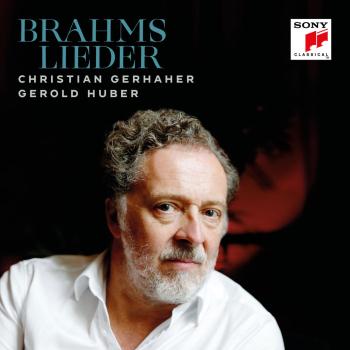
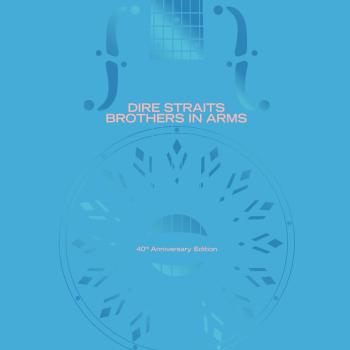

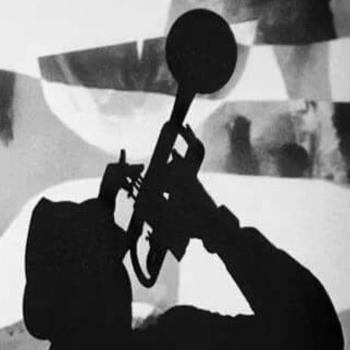
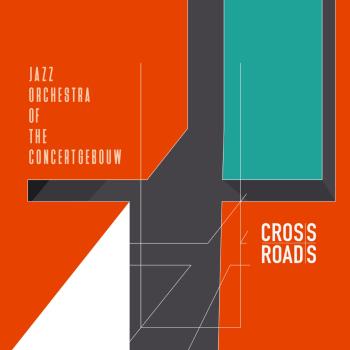
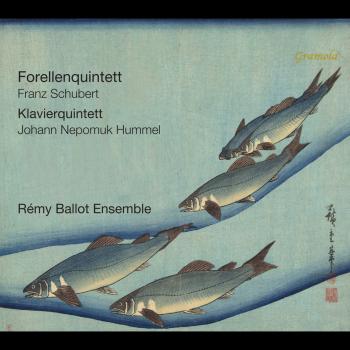


![Cover Prokofiev: Scythian Suite, Romeo and Juliet (Excerpts) [Live]](https://storage.highresaudio.com/web/imgcache/9990153db7289b1abfd5000694cf6b23/yzm955-prokofievs-master_350x350.jpg)
![Cover Sibelius: Symphony No. 5 in E-Flat Major Op. 82 & Stravinsky: The Firebird (Suite) [Live]](https://storage.highresaudio.com/web/imgcache/84833dfda866387c7004440c9f1ccd7d/iacsok-sibeliussy-master_350x350.jpg)

